Traditionally, CBIs were present in some Pacific and Caribbean islands that couldn’t provide much aside from a second trustworthy passport.
“That sounds pretty good to me,”, you may think, and that’s right. However, in 2014, Malta became the first EU member to provide an extensive CBI program. Thus, it was the first country to offer extra benefits in a dynamic investment environment for those who benefit from the program.
Malta’s CBI was an overhaul. Similar programs followed it in Cyprus, another EU member, and Montenegro, which will be an EU member in 2025.
Still, Malta remains the most prestigious program.
Malta is an EU country and received the support of the organization for its program because of its strong due diligence. The program is more expensive than most Caribbean programs, but it offers you secure investments that will actually give you a strong return.
Also, the current program just changed dramatically. Since September 2020, most conditions of the program have hardened. Still, that is the main reason why it's still unbeaten.
In today’s world, having a second reliable passport is an unmissable opportunity for high net worth individuals and Malta should be at the top of your list. After all, you don’t get the chance to have a EU passport every day.
If we compare it to the other two European programs (Montenegro and Cyprus), we’ll find some of the competitive edges Malta has over them.
First, Montenegro is yet to be a member of the EU. Even as the plans seem to be on track, the acceptance was moved from 2022 to 2025. Also, Montenegro’s program is somewhat new and is limited to 3000 participants during the next three years.
You may also say: but Cyprus is an EU country too! That’s right, but the Cypriot program costs twice as much as Malta’s CBI, while Malta offers similar tax benefits for those that apply.
The country offers two programs for investors: the Global Residence Program (residence by investment) and the Individual Investor Program (citizenship by investment). Both programs seek to attract FDI to the island and to support social projects in the country, and have achieved great success in doing so.
Let’s talk about some of the benefits.
A Top-10 passport with complete EU access:
Just as you read. A Maltese passport gives you visa-free travel to 182 countries, which means it is the 10th best passport in the world. That is way higher than the Russian, Chinese, all Latin American passports, and even most European passports. It’s also the best passport among the CBI countries. You can enjoy visa-free travel to the USA, Canada, Japan, the UK, and the European Union.
Moreover, it allows you to live, work, travel, study, and invest across the EU and Switzerland with complete freedom. That’s the best feature of the passport as it opens terrific financial opportunities for you and your family.
Extensive program:
The programs are not limited to the main applicant.
The residence program also includes: spouse, children under 18, children over 18 if they are financially dependent and not married, parents and grandparents of the main applicant, and parents and grandparents of the main applicant’s spouse, as long as they live with the main applicant and are financially dependent on him.
The citizenship program is almost the same, with the only difference that regarding children, only children under 18 and children between 18 and 26 years old, as long as they are financially dependent and not married, are included.
Tax optimization:
Malta has no wealth taxes, and its system is based on domicile, not citizenship. Hence, those with Maltese citizenship aren’t automatic tax residents, only remittances are taxed, and they don’t have to comply with mandatory asset reporting. Moreover, non-resident citizens are only taxed on their Maltese-sourced income and can reside in any other jurisdiction if they wish to optimize their taxes.
Additionally, Malta has more than 70 double taxation treaties, which gives beneficiaries plenty of opportunities to optimize and plan their taxes. Likewise, the residence program provides a flat 15 % income tax rate for those who are accepted in the program.
After explaining the main benefits of the CBI and RBI programs, let’s get into the specifics. Both programs have similar admissibility criteria:
|
Residence |
Citizenship |
|
Non-EU citizen |
High net worth investor of pristine reputation |
|
EU-covered health insurance |
Non-EU citizen |
|
€100k annual income or €500k in capital assets |
Greenlighted by the Maltese government due diligence |
|
Good medical condition |
Good medical condition |
|
Clean criminal record |
Clean criminal record |
|
The applicant and dependents are protected by a global health insurance policy of €50k or more |
|
|
Proof that the applicant has been a Malta resident for at least 12 months |
Now, we can explain the financial requirements of both programs:
The residency program has fewer financial requirements*:
- Buy €250k in government stocks/equities on the Malta stock exchange
- Rent a property for €10k per year or more, or buy a personal residence of at least €270k
- Make a €24.5k donation to the National Development and Social Fund of Malta (NDSFM)
- Hold the property and investments for at least five years
- Total minimum investment: €324.5k with rented property, €544.5k with purchased property
The citizenship program has more stringent financial requirements**:
- There are two donation options. One is making a €600k donation to the NDSFM and being eligible for citizenship within three years of becoming a resident. The other is making a €750k donation and being eligible after one year of residency. Previously, the program only required you to make a flat €650k donation and you were eligible after one year of residency. Plus, there’s an additional €25k per the spouse and child under 18 years old and €50k per adult dependent (including children older than 18 years)
- Buy a property for at least €700k or rent a property for at least €18k per year.
- Acquire €150k in securities.
- Make a €10k donation to a registered charitable donation.
- The property and the stocks must be kept for five years minimum.
Now, let’s explain the application process.
*The residency program has changed and we will publish updated information soon.
**The new Malta citizenship program has been available since November 2020 and is called "Naturalization of Exceptional services program".
This program has a limit of 1,500 applications and 400 applicants will be considered each year for acquiring the Maltese passport. All applications will be revised by the Community Malta Agency under the following criteria:
- The main applicant should be 18 years old or older and he/she can include family members as dependents. The extra fee for each dependent will be 50,000 euros.
- The individual can apply for citizenship by investment after having lived in the country for a specific period.
- If the individual has legally lived in Malta for 36 months, then the minimum investment must reach 600,000 euros.
- If the individual has legally resided in Malta for 12 months, then he/she is required to make a larger investment of at least 750,000 euros.
- The applicant can either purchase or rent real estate in Malta which must be held under the applicant´s ownership for five years and cannot be subleased.
- If the applicant buys a property, its value should be at least 700,000 euros.
- If the applicant is renting a property, the annual rental value must be at least 16,000 euros.
- The applicant is required to donate 10,000 euros to a local organization. This entity must have approval from the Community Malta Agency, be officially registered, and have a philanthropic purpose which can be sports, scientific research, animal welfare, or cultural activities. It is also possible to donate this money to a non-government or civil society organization.
- Since the applicant is required to live in the country before applying for citizenship by investment, he/she will need a valid residency card. This document is usually issued after acquiring a property in the country.
- The applicant must present health certificates stating that the applicant and dependents are in good health.
- The applicant will be required to pass the due diligence processes to confirm the legit source of funds and to prove his/her reputation is spotless.
Application process
First, the residency program. It has five main steps:
- Making and submitting your application: Our experts will conduct a background check to see if you are eligible for the program of your choice and gather all the necessary documents for the application. It contains paying legal fees and submitting the application to begin the process formally.
- Due diligence: The authorities will conduct their own background check on the main applicant, his or her spouse, and dependents. It requires a €5.5k payment to start the due diligence.
- Decision on the application: In this step, the Maltese authorities will tell the applicant their decision regarding his application. Only after this, the investor will finally make the €24.5k contribution, purchase the bonds, and rent/purchase the property. That means that most of the expenses are only done if the decision is positive
- Biometric data: Only in this step the applicant must travel to Malta, as he has to be present to submit his biometric data
- Obtaining the residency card: Finally, the government issues the residence card, which is valid for five years.
- Our Discuss Holdings experts conduct an initial background check to guarantee the applicant is suitable and has all the necessary documents.
- The investor must fill the application forms and gather all the necessary documentation our experts ask him for. Also, Identity Malta starts due diligence over the main applicant and his family.
- Here, you must apply for residency in Malta. Before, this didn't require you to actually live in Malta, but just hold the residency for at least a year. Now, even though it is unclear, it seems that you'd actually be required to spend some time in Malta within a one-year or three-year period, depending on the donation you make.
- Our experts send the application to Identity Malta with the due diligence fees.
- Identity Malta responds. If it’s a favorable response, Identity Malta will issue a Letter of Approval in Principle. Identity Malta has the responsibility to respond in 120 days after the application was received.
- When the Letter arrives, the client has 25 days to pay the non-refundable donation to the Maltese government, and within four months of the arrival, the client must show to Identity Malta he has conducted the real estate purchase or lease, and the purchase of securities.
- After this, the applicant and his family must travel to Malta -if they are not there- to take the Oath of Allegiance and give the biometric data.
- The applicant and all his dependents will receive their naturalization card and can submit a simple passport application to get it.
Who we are
Mundo experts have 25 years of aiding high-net-worth individuals to get second passports. In today’s world, where governments curtail individual freedoms, this is more a necessity than an option to secure your investments and conduct your business freely.
Since 1994, we’ve assembled an unmatched network of experts to provide the best services for you. We work in Malta with Discus Holdings, which is one of the top RBI and CBI providers in Malta, where they have their main headquarters.
They offer full transparency, which means there are no small letter clauses and no hidden fees. They give you complete support before, during, and after your application process with a 100 % success rate as of today.
The Malta CBI and RBI programs are probably the most prestigious. Why have they been so successful?
In 2020, only two EU Member States have real citizenship by investment programs. Both Malta and Cyprus are flourishing countries with mild weather, welcoming people, and low taxes. Moreover, the Maltese passport is the most useful travel document among all travel documents of the jurisdictions with CIP schemes.
What advantages can the program offer for investors?
Investors can enjoy the incomparable advantages of Malta. They become citizens of the European Union, can travel, live, and work in any other European countries in the Union and the Schengen zone. Don't forget the citizens' children may also study in other states.
Also, it's vital to notice that Malta's low-tax regime differs from the other rigid and high-tax laws of most EU Member States. Malta has a long tradition of productive, profitable commerce and banking. The Maltese financial center is prepared to accept business from Latin-America, there are no cultural barriers, and the financial institutes are flexible. Nowadays, health care became a crucially important question. The blue EU healthcare card allows the holders to receive treatment in any other Member State for free. Maltese citizens, who are living in another country do not have to pay tax on their foreign-sourced income.
Why choose Malta, and not Cyprus, who is an EU member, too, or one of the Caribbean and Pacific Islands that offer a CBI program?
Malta has unique advantages. First of all, in the EU, only Malta and Ireland use English as an official language. Don't forget that Malta uses territorial taxation, and foreign-sourced income is tax-exempt while Cyprus has a worldwide tax system.
Regarding the comparison with the Caribbean programs, the primary benefit of those programs is the Schengen visa exemption. Still, a Caribbean passport does not allow you to live or work in the European Union. The passport of Malta offers you another level of freedom to travel.
The Maltese passport will enable you to enter 169 countries without a visa or by picking up one upon arrival, and it is the fifth strongest travel document of the world. Even the strongest Caribbean passport (of Saint Kitts and Nevis) allows you to enter only 142 countries and holds the 19th position in the international comparison of the passports' strength.
Are the programs seeing many backlogs? What is the average time it takes to get the CBI and RBI?
As official agents of the program, it is our responsibility to submit complete documentation. There can be seasonal backlog during the RBI scheme, but if there are no missing documents, we can plan the time frame of the successful processes, according to the law. Regarding the residency by investment program, the due diligence process takes three months. Meanwhile, to obtain the Maltese passport through the citizenship scheme takes one year.
What are the main differences between both programs? Do they provide the same potential tax benefits?
Naturally, the legal status of a resident and a citizen is different. In Malta, the not domiciled residents enjoy tax exemption on their not remitted foreign-sourced income. Meanwhile, the citizens of Malta can live where they want and can become tax residents in other countries so that they can decide their tax requirements.
Apart from the financial requirements, do the programs have different requirements regarding the eligibility criteria?
Does the RBI program have any particular requirements over the minimum annual income? How much has to be added per dependent?
In the case of the Malta Residence & Visa Program, the applicant must prove an annual income of not less than €100,000 arising outside Malta or must have a capital of minimum €500,000. Meanwhile, the eligibility criteria for the Individual Investor Programme is that all applicants and each dependent must have a global health insurance coverage of at least €50,000 and must provide evidence that they can maintain it for an indefinite period.
How many dependents are allowed by both programs?
Under the Malta IIP:
- a child, including an adopted child, of the main applicant, or of the spouse of the main applicant, who is less than 18 years of age;
- a child of the main applicant, or of the spouse of the main applicant, who is between 18 and 26 years of age, who is not married, and who proves that he/she is wholly maintained or supported by the main applicant;
- a parent or grandparent of the main applicant, or of the spouse of the principal applicant, who is over 55 years of age, and proves that he/she is wholly maintained or supported by the main applicant, and forms part of the household of the main applicant;
- a child of the main applicant, or of the spouse of the principal applicant, who is at least 18 years of age, is physically or mentally challenged, and who is living with and is fully supported by the primary applicant.
Meanwhile, under the MVRP Program, the following dependents of the primary applicant may participate:
- The spouse of the principal applicant in a monogamous marriage or in another relationship having a similar status to marriage, unless the Minister authorizes otherwise on a case by case basis.
- A child, including an adopted child, of the principal applicant or of his spouse who at the time of application, is less than eighteen years of age.
- A child, including an adopted child, of the principal applicant or of his or her spouse, who at the time of application is not yet born or not yet adopted by the principal applicant or by his spouse, and is born or becomes so adopted after the appointed day.
- A child, including an adopted child, of the principal applicant or of his spouse, who at the time of application is adult (over eighteen years of age), not married, and proves that at the time of application he or she is not economically active and is principally dependent on the main applicant.
- A parent or grandparent is eligible, who proves that at the time of application, that he or she is not economically active and is principally dependent on the principal applicant.
- An adult child of the primary applicant or the spouse of the principal applicant who has been certified by a medical professional/authority as having a disability.
What is the minimum investment term? Can I sell my property after that term without buying/leasing a new one? Is it the same with the RBI program?
The citizens must maintain the investments (bonds + real estate ownership or rental) for five years. Regarding the residency by investment program, the investor must keep the investment for at least five years either until he or she becomes a citizen or decides to change the resident status.
What are the associated fees to apply for the CBI program?
Due Diligence Fees:
- Principal applicant: €7,500
- Spouse: €5,000
- Each Dependent child aged 0-17: €3,000
- Each Dependent aged 18-26: €5,000
- Each Dependent aged 55 or above: €5,000.
What are the financial requirements of the RBI program?
- Investments in highly reliable Maltese government bonds of €250,000, for 5 years
- Contribution to the State Fund of Malta in the amount of €30,000.
- Purchase or rent a property in Malta for residential use.
- Purchase: not less than €320,000 for a property situated in the North of Malta, or €270,000 for a property located in Gozo or the South of Malta.
- Rental: €12,000 per annum for a property situated in Malta; or €10,000 per annum for a property located in Gozo or the south of Malta).
Do the RBI program's contribution and fees cover the whole family?
The €30,000 contribution covers the main applicant, spouse, and children of the main applicant/spouse at the application stage. A further contribution of €5,000 is applicable for every parent or grandparent of the main applicant or spouse at the application stage.
What are the associated fees to apply for the RBI program?
There is a non-refundable due diligence fee of €5,500.
How much of the total investment must be paid with the application in both cases? Do I have to pay for the property, make the contribution, and invest in bonds before applying or only after receiving an approval?
As an official agent of the Maltese investor's immigration programs, we help the clients to prepare the proper documents for the application. For the citizenship program, the investor must also transfer the professional fees, the government due diligence fees, a non-refundable contribution of €10,000 as a partial payment of the NDSF contribution in exchange for the Letter of Approval in Principle".
Within four months of the Letter of Approval in Principle, proof must be submitted to Identity Malta that the applicant completed the real estate purchase or fulfilled the lease, as well as completed the requisite €150,000 investment required by law.
Once the Letter of Approval in Principle has been issued, Malta Immigration will be able to grant the applicant and family members a National Visa (for a period 90 days). It allows them to visit Malta to take the Oath of Allegiance, complete any property viewings to purchase, and provide their biometric data (fingerprints and iris scan). If the applicant met all the conditions, within two years but not earlier than six months from the date of the application, the authority issues the Certificate of Naturalization, which is needed to obtain the passports.
Is the donation to the NDSF refundable?
The donation is not refundable.
Are the RBI beneficiaries required to live in Malta for a determinate time per year?
The minimum number of days to be spent in Malta is not specified.
Must the CBI applicants live in Malta before, during, and after the application?
The minimum number of days to be spent in Malta is not specified. Citizens of Malta can live, work or stay, wherever they want to. Before the application there wasn't a set of days determined under the old rules; under the new program, some level of physical presence in Malta might be required.
In which steps of the process, the applicant must be physically present in Malta (in both programs)?
During the process, the applicants must visit Malta to provide their biometric data, and they must personally pick up the passports.
Are the names of those approved in the CBI program published somewhere?
The Government of Malta, every year, publishes the names of all foreign citizens who naturalized for citizenship in the official Gazette. The Gazette publishes the names of all naturalized citizens and IIP citizens combined in December of the following year.
Does Malta recognize dual citizenship? Can citizenship be revoked?
Malta recognizes dual citizenship since 2000.
Yes, the Maltese citizenship can be lost through deprivation if:
- The citizenship was acquired using fraud, false representation, or the concealment of any material fact.
- The citizen has shown himself or herself by act or speech to be disloyal or disaffected towards the President or the Government of Malta.
- The citizen engaged, unlawfully traded either communicated with an enemy or associated with any business motivated by the willingness to assist an enemy in a war.
- The citizen has, within seven years after becoming naturalized as a Maltese citizen, been sentenced to a punishment of not less than twelve months in prison.
- The citizen has been ordinarily resident in foreign countries for a continuous period of seven years. During such time, he or she has neither been in the service of the Republic or of an international organization of which the Government of Malta was a member nor given a notice in writing to the Minister of his or her intention to retain citizenship of Malta.
Malta has one of the stringiest due diligence processes among the CBI and RBI programs. How can Discus Holdings guarantee success to their clients? What's your success rate in Malta?
Our headquarters is in Malta; we are a local company there with the experience of long years. Our success rate is 100% because our clients must go through a strict preliminary due diligence check. It is our responsibility to prepare the documents and the applicants for the process, and we do our job very well.
Is Discus Holdings a government-licensed service provider in Malta?
Naturally, Discus Holdings was among the first immigration and investment consultancies to obtain the license from the government, you can check it on the official list of service providers in the relevant section of the Identity Malta's website.
What do you offer over other providers in Malta? Why should a client pick Discus Holdings?
Most of our competitors entered the citizenship and residency by investment sector only a couple of years ago. Meanwhile, our colleagues have more than 25 years of experience. Even before the trend of obtaining second citizenship started, we have already been one of the leading European company forming and tax planning service providers in Central Europe. We have the contacts, and we are official agents of the programs. We take the success of your application personally. Ask for a free consultation to check the quality of our service.
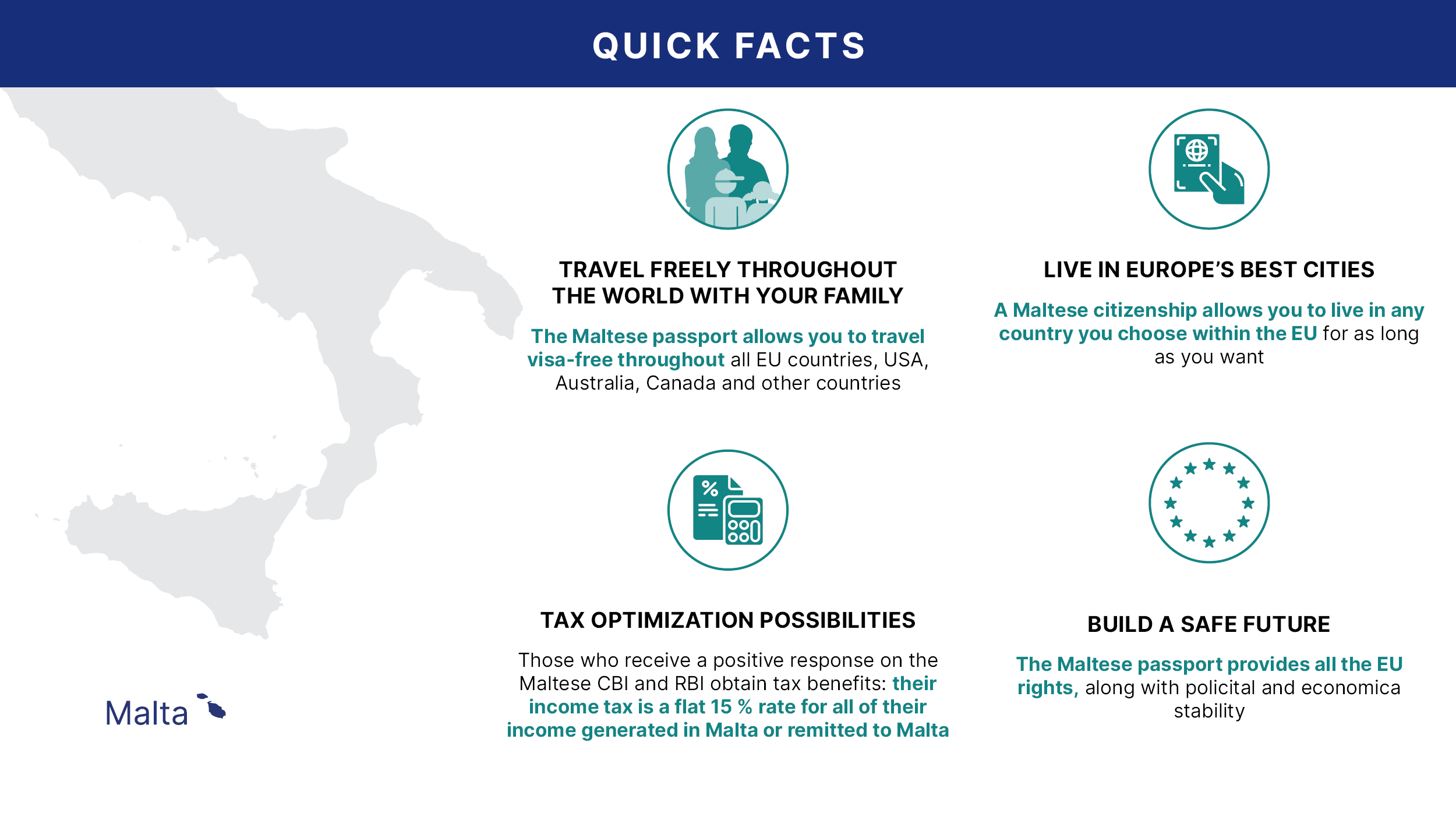


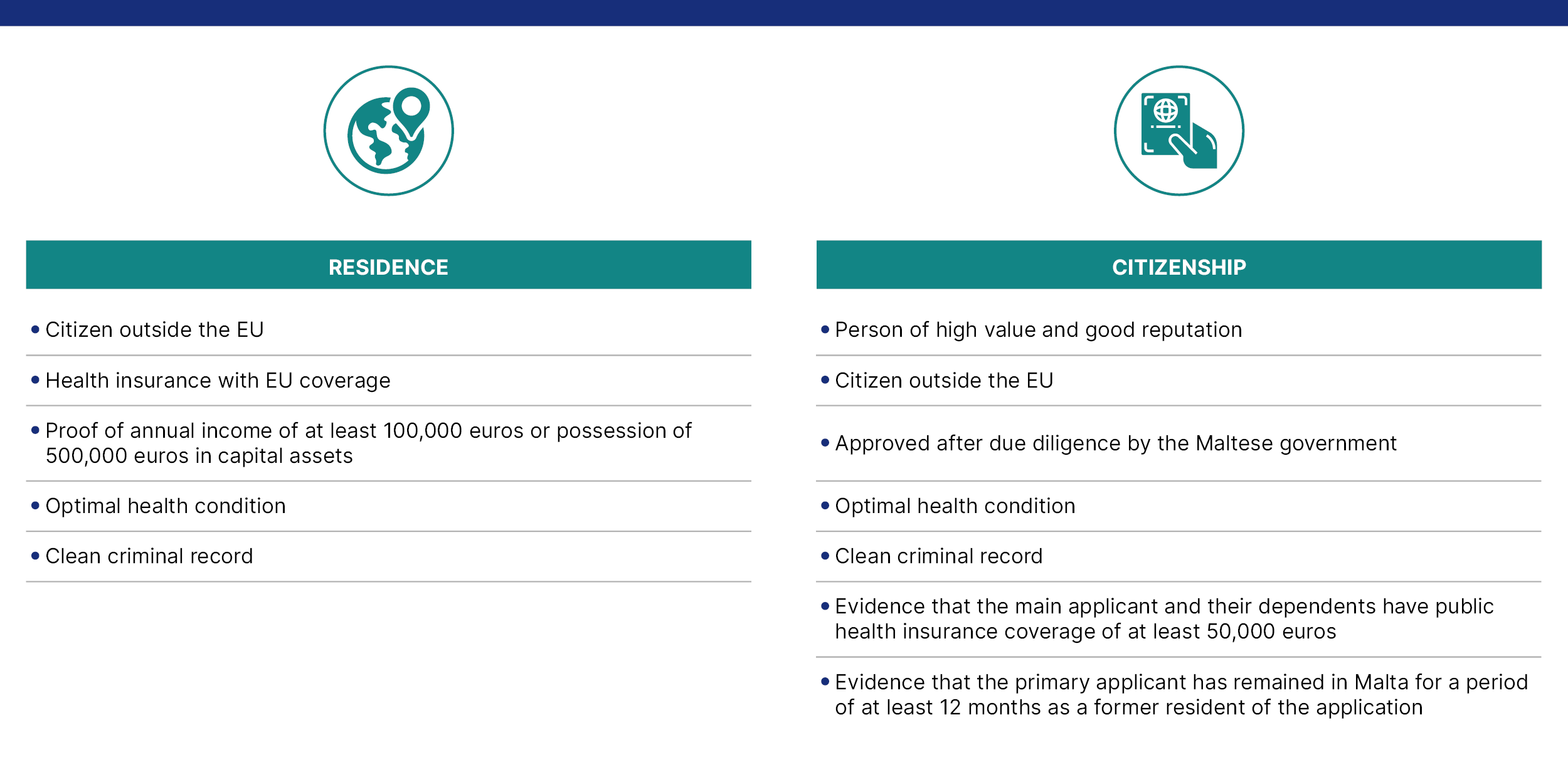
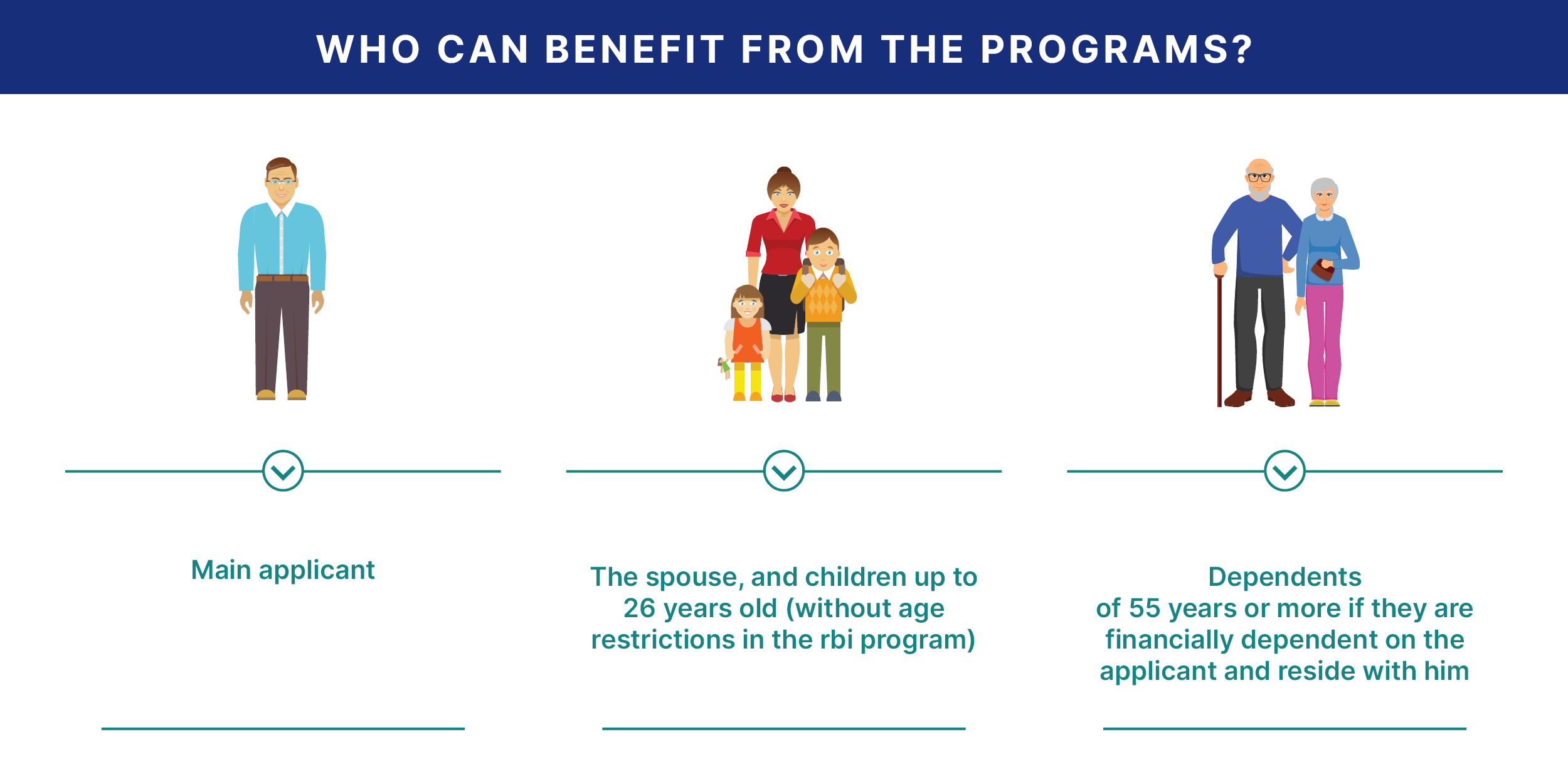
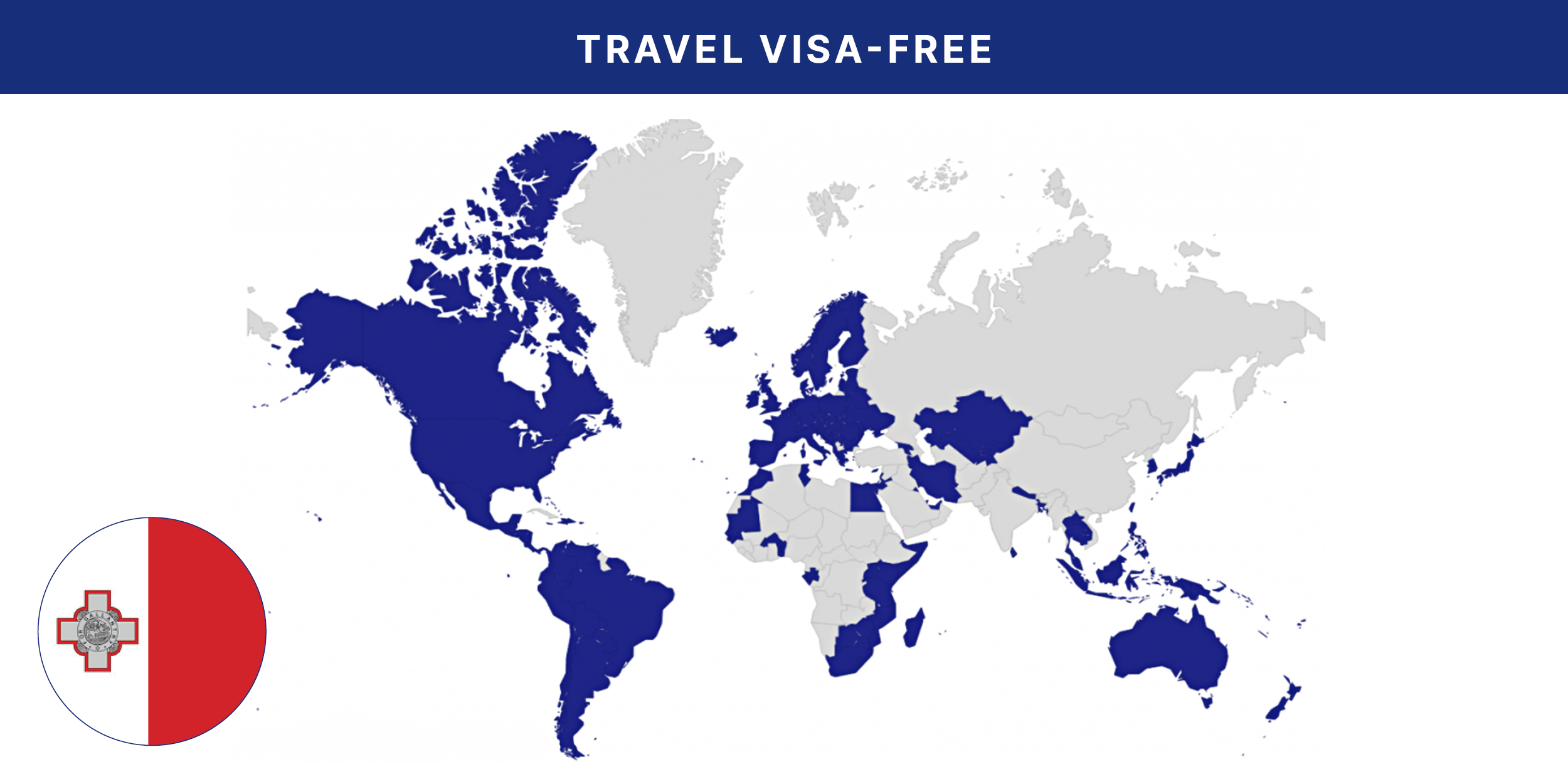

Contact us now and become an EU citizen with Discus Holdings and Mundo Offshore! Enquire now!
$170,000
$2,500,000
$350,000
$1,400,000
$395,000
Having structures abroad, like companies or bank accounts, can significantly boost your projects, br...
The Caribbean is entering a decisive stage of transformation. Regional governments are introducing u...
We think that the most challenging part of choosing a CBI is considering the minimum investment, the...
The world map is covered with shades of blue, yet only a few places make time stand still. Among the...
The waters of the Caribbean and the sands of the Persian Gulf may seem like very different worlds, y...
By constantly finding new opportunities, we can help readers achieve their goals and find what they'...


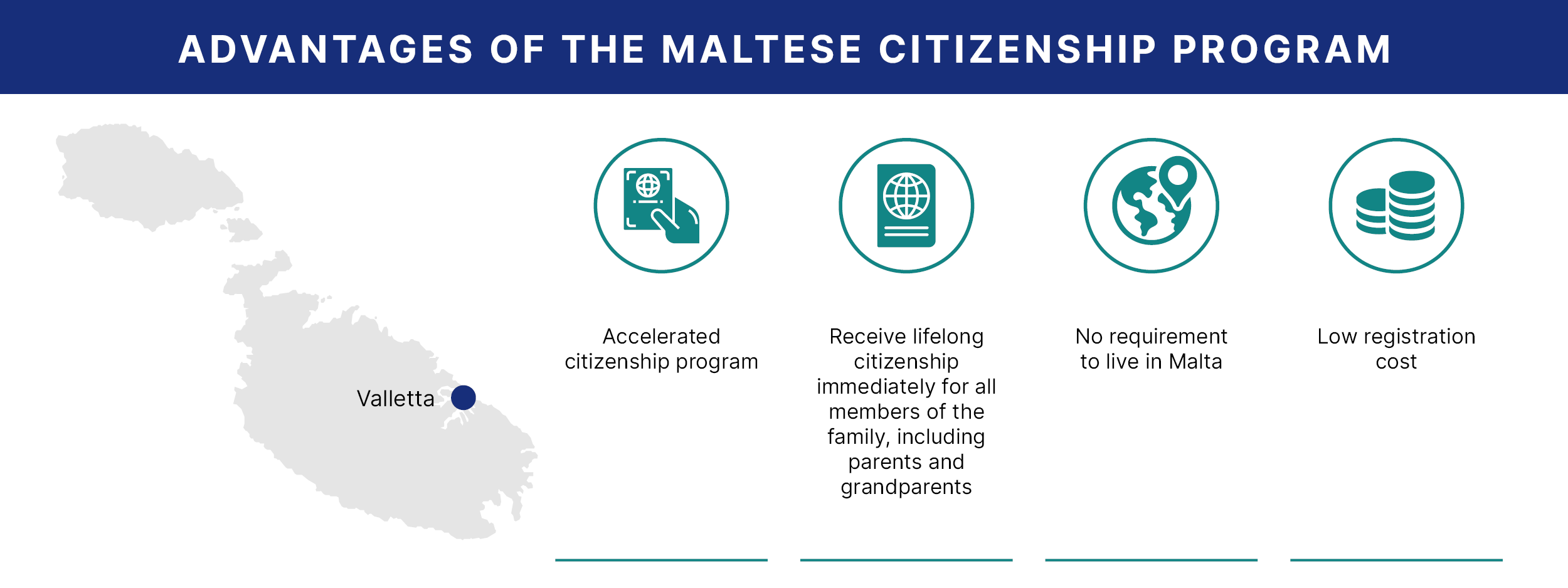

.png.small.WebP)


.png.small.WebP)


.png.small.WebP)
